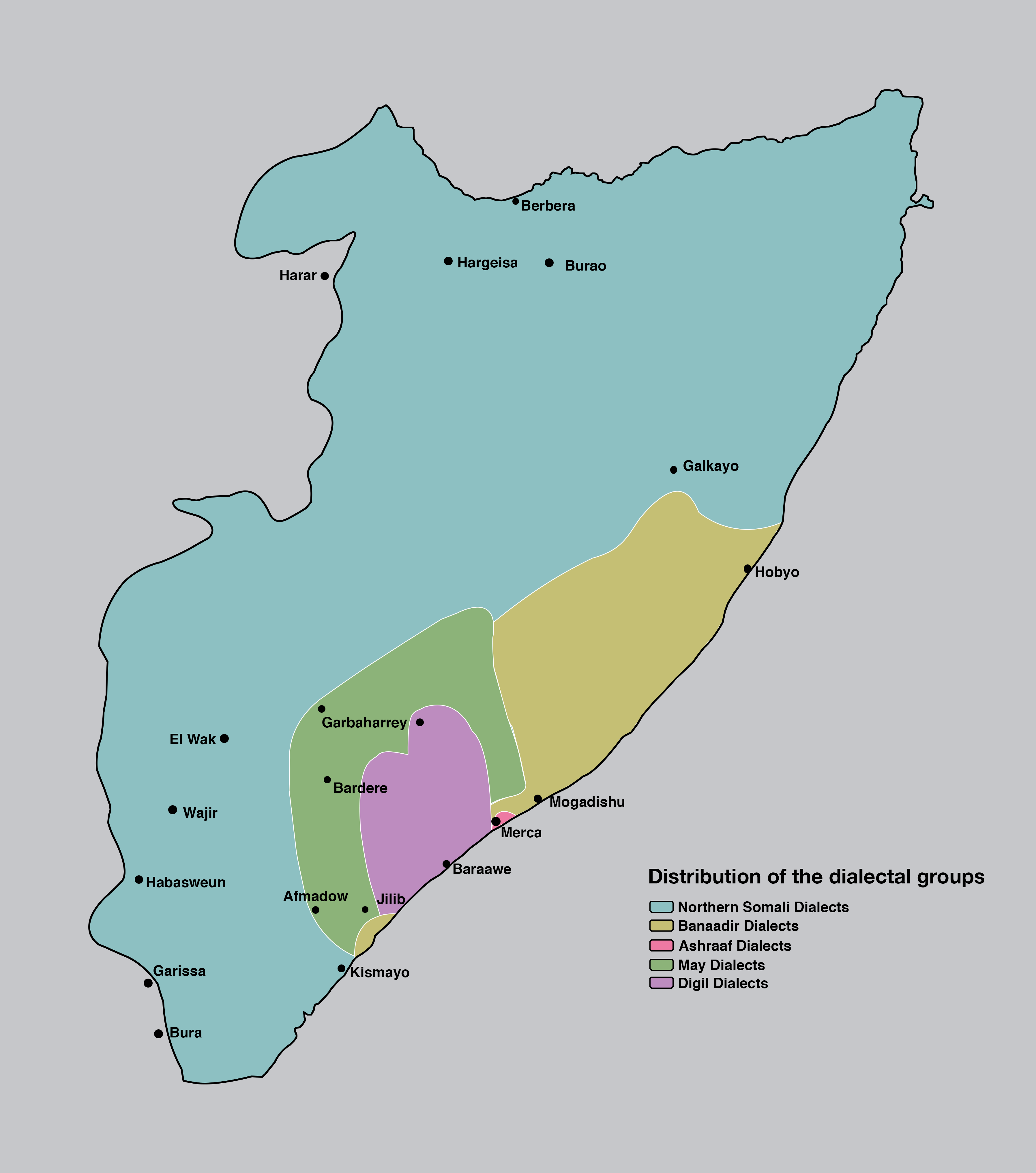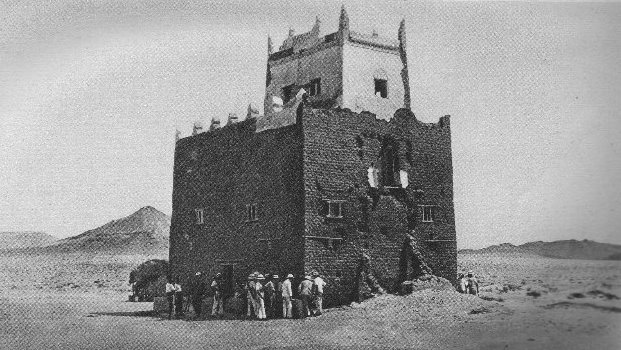|
Transitional Federal Charter Of The Somali Republic
The Transitional Federal Charter of the Somali Republic (TFC) was the principle organizing document of Somalia. Written and approved in February 2004, it represented one of the Transitional Federal Institutions (TFIs). The other TFIs included the Transitional Federal Parliament (TFP), which was the legislative branch, and the Transitional Federal Government (TFG), the TFI's executive wing. The TFC was distinct from the national constitution, which was distinguished as a separate document (Chapter 4, Article 11, Section 3(a)). On 1 August 2012, an 825-member national constituent assembly approved a new provisional constitution by a landslide of 96% for the Federal Republic of Somalia. Chapter 1 The Charter's first Chapter establishes the Transitional Federal Government as the sovereign government of Somalia (Article 1), and gives the government supremacy of law over the nation (Article 3). It defines Somalia in Article 3 as having the following borders: (a) North; Gulf of Ad ... [...More Info...] [...Related Items...] OR: [Wikipedia] [Google] [Baidu] |
Somalia
Somalia, , Osmanya script: 𐒈𐒝𐒑𐒛𐒐𐒘𐒕𐒖; ar, الصومال, aṣ-Ṣūmāl officially the Federal Republic of SomaliaThe ''Federal Republic of Somalia'' is the country's name per Article 1 of thProvisional Constitution, (; ), is a country in the Horn of Africa. The country is bordered by Ethiopia to the west, Djibouti to the northwest, the Gulf of Aden to the north, the Indian Ocean to the east, and Kenya to the southwest. Somalia has the longest coastline on Africa's mainland. Its terrain consists mainly of plateaus, plains, and highlands. Hot conditions prevail year-round, with periodic monsoon winds and irregular rainfall. Somalia has an estimated population of around million, of which over 2 million live in the Capital city, capital and largest city Mogadishu, and has been described as Africa's most culturally homogeneous country. Around 85% of its residents are ethnic Somalis, who have historically inhabited the country's north. Ethnic minoritie ... [...More Info...] [...Related Items...] OR: [Wikipedia] [Google] [Baidu] |
Somali Language
Somali (Latin script: ; Wadaad: ; Osmanya: 𐒖𐒍 𐒈𐒝𐒑𐒛𐒐𐒘 ) is an Afroasiatic language belonging to the Cushitic branch. It is spoken as a mother tongue by Somalis in Greater Somalia and the Somali diaspora. Somali is an official language in Somalia and Ethiopia, and a national language in Djibouti as well as in northeastern Kenya. The Somali language is written officially with the Latin alphabet although the Arabic alphabet and several Somali scripts like Osmanya, Kaddare and the Borama script are informally used.Lewis, I.M. (1958)The Gadabuursi Somali Script ''Bulletin of the School of Oriental and African Studies'', University of London, Vol. 21, pp. 134–156. Classification Somali is classified within the Cushitic branch of the Afroasiatic family, specifically, Lowland East Cushitic in addition to Afar and Saho. Somali is the best-documented of the Cushitic languages, with academic studies of the language dating back to the late 19th century. ... [...More Info...] [...Related Items...] OR: [Wikipedia] [Google] [Baidu] |
Referendum
A referendum (plural: referendums or less commonly referenda) is a direct vote by the electorate on a proposal, law, or political issue. This is in contrast to an issue being voted on by a representative. This may result in the adoption of a new policy or specific law, or the referendum may be only advisory. In some countries, it is synonymous with or commonly known by other names including plebiscite, votation, popular consultation, ballot question, ballot measure, or proposition. Some definitions of 'plebiscite' suggest it is a type of vote to change the constitution or government of a country. The word, 'referendum' is often a catchall, used for both legislative referrals and initiatives. Etymology 'Referendum' is the gerundive form of the Latin verb , literally "to carry back" (from the verb , "to bear, bring, carry" plus the inseparable prefix , here meaning "back"Marchant & Charles, Cassell's Latin Dictionary, 1928, p. 469.). As a gerundive is an adjective,A ... [...More Info...] [...Related Items...] OR: [Wikipedia] [Google] [Baidu] |
Constitution
A constitution is the aggregate of fundamental principles or established precedents that constitute the legal basis of a polity, organisation or other type of entity and commonly determine how that entity is to be governed. When these principles are written down into a single document or set of legal documents, those documents may be said to embody a ''written constitution''; if they are encompassed in a single comprehensive document, it is said to embody a ''codified constitution''. The Constitution of the United Kingdom is a notable example of an ''uncodified constitution''; it is instead written in numerous fundamental Acts of a legislature, court cases or treaties. Constitutions concern different levels of organizations, from sovereign countries to companies and unincorporated associations. A treaty which establishes an international organization is also its constitution, in that it would define how that organization is constituted. Within states, a constitution defines ... [...More Info...] [...Related Items...] OR: [Wikipedia] [Google] [Baidu] |
Census
A census is the procedure of systematically acquiring, recording and calculating information about the members of a given population. This term is used mostly in connection with national population and housing censuses; other common censuses include censuses of agriculture, traditional culture, business, supplies, and traffic censuses. The United Nations (UN) defines the essential features of population and housing censuses as "individual enumeration, universality within a defined territory, simultaneity and defined periodicity", and recommends that population censuses be taken at least every ten years. UN recommendations also cover census topics to be collected, official definitions, classifications and other useful information to co-ordinate international practices. The UN's Food and Agriculture Organization (FAO), in turn, defines the census of agriculture as "a statistical operation for collecting, processing and disseminating data on the structure of agriculture, coverin ... [...More Info...] [...Related Items...] OR: [Wikipedia] [Google] [Baidu] |
Puntland
Puntland ( so, Puntland, ar, أرض البنط, it, Terra di Punt or ''Paese di Punt''), officially the Puntland State of Somalia ( so, Dowlad Goboleedka Puntland ee Soomaaliya, ar, ولاية أرض البنط الصومالية), is a Federal Member State in northeastern Somalia. The capital city is the city of Garoowe in the Nugal region, and its leaders declared the territory an autonomous state in 1998. Geographically to the west, Puntland lays claim to the intra-46th meridian territories that were outside European colonial rule during parts of the Scramble for Africa period. Puntland is bordered by Somaliland to its west, the Gulf of Aden in the north, the Guardafui Channel in the northeast, the Indian Ocean in the southeast, the central Galmudug region in the south, and Ethiopia in the southwest. There are several major geographical apexes in Puntland, including the Cape Guardafui, which forms the tip of the Horn of Africa, Ras Hafun the easternmost place ... [...More Info...] [...Related Items...] OR: [Wikipedia] [Google] [Baidu] |
Districts Of Somalia
Somalia is officially divided into 18 administrative regions (''gobollo'', singular ''gobol'') . These are in turn subdivided into seventy-two districts (plural ''degmooyin''; singular ''degmo'') On a ''de facto'' basis, northern Somalia is now divided up among the autonomous region of Puntland (which considers itself an autonomous state) and Somaliland (a self-declared but unrecognized sovereign state). In central Somalia, Galmudug is another regional entity that emerged south of Puntland. For these civil war divisions, see '' States and regions of Somalia''. Regions and districts Historical divisions Pre-independence In 1931, Italian Somaliland consisted of seven commissariats."Regions of Somalia" ''Statoids''. Retrieved 20 February 2011. * Alto Giuba * Alto Uebi-Scebeli * Basso Giuba * Basso Uebi-Scebeli * Migiurtinia * Mogadi ... [...More Info...] [...Related Items...] OR: [Wikipedia] [Google] [Baidu] |
Regions Of Somalia
Countries' first-level (top-level) administrative division Administrative division, administrative unit,Article 3(1). country subdivision, administrative region, subnational entity, constituent state, as well as many similar terms, are generic names for geographical areas into which a particular, ind ...s. ''Please note:'' This category's subcategories contain articles on each subdivision of the country while each directly included article considers the subdivisions structure of the country. ''Further note:'' This category's subcategories are indexed according to country, but its directly included articles are not: they are indexed by type of subdivision (provinces, counties, etc). Articles with non-English subdivision terms in their titles either have their redirects indexed instead, or are indexed by the common English translation for said subdivision. This facilitates comparisons between similarly named subdivisions. {{CatAutoTOC 1st-level ... [...More Info...] [...Related Items...] OR: [Wikipedia] [Google] [Baidu] |
Federal Government
A federation (also known as a federal state) is a political entity characterized by a union of partially self-governing provinces, states, or other regions under a central federal government (federalism). In a federation, the self-governing status of the component states, as well as the division of power between them and the central government, is typically constitutionally entrenched and may not be altered by a unilateral decision, neither by the component states nor the federal political body. Alternatively, a federation is a form of government in which sovereign power is formally divided between a central authority and a number of constituent regions so that each region retains some degree of control over its internal affairs. It is often argued that federal states where the central government has overriding powers are not truly federal states. For example, such overriding powers may include: the constitutional authority to suspend a constituent state's government by ... [...More Info...] [...Related Items...] OR: [Wikipedia] [Google] [Baidu] |
Sharia
Sharia (; ar, شريعة, sharīʿa ) is a body of religious law that forms a part of the Islamic tradition. It is derived from the religious precepts of Islam and is based on the sacred scriptures of Islam, particularly the Quran and the Hadith. In Arabic, the term ''sharīʿah'' refers to God's immutable divine law and is contrasted with ''fiqh'', which refers to its human scholarly interpretations. In the historical course, fiqh sects have emerged that reflect the preferences of certain societies and state administrations on behalf of people who are interested in the theoretical (method) and practical application ( Ahkam / fatwa) studies of laws and rules, but sharia has never been a valid legal system on its own. It has been used together with " customary (Urf) law" since Omar or the Umayyads. It may also be wrong to think that the Sharia, as a religious argument or belief, is entirely within or related to Allah's commands and prohibitions. Several non-graded crim ... [...More Info...] [...Related Items...] OR: [Wikipedia] [Google] [Baidu] |
Islam
Islam (; ar, ۘالِإسلَام, , ) is an Abrahamic monotheistic religion centred primarily around the Quran, a religious text considered by Muslims to be the direct word of God (or ''Allah'') as it was revealed to Muhammad, the main and final Islamic prophet.Peters, F. E. 2009. "Allāh." In , edited by J. L. Esposito. Oxford: Oxford University Press. . (See alsoquick reference) " e Muslims' understanding of Allāh is based...on the Qurʿān's public witness. Allāh is Unique, the Creator, Sovereign, and Judge of mankind. It is Allāh who directs the universe through his direct action on nature and who has guided human history through his prophets, Abraham, with whom he made his covenant, Moses/Moosa, Jesus/Eesa, and Muḥammad, through all of whom he founded his chosen communities, the 'Peoples of the Book.'" It is the world's second-largest religion behind Christianity, with its followers ranging between 1-1.8 billion globally, or around a quarter of the world' ... [...More Info...] [...Related Items...] OR: [Wikipedia] [Google] [Baidu] |






.jpg)